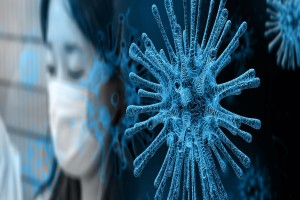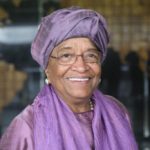
Former New Zealand Prime Minister Helen Clark says WHO was constrained by IHRs
New York: In order to prevent future pandemics, Ellen Johnson Sirleaf, former President of Liberia, and Helen Clark, former Prime Minister of New Zealand, who were Co-Chairs of the Independent Panel for Pandemic Preparedness and Response which reported to the World Health Assembly in May 2021 on lessons learnt from the international response to COVID-19, have recommended the United Nations General Assembly to set up a Global Heath Threats Council at Head of State and Government level, with its membership endorsed by the General Assembly. “The United Nations General Assembly should adopt a political declaration setting out a road map to strengthen the international system,” they said.
Briefing Member States at the UNGA on measures to respond to COVID-19 and prevent future pandemics, on July 28, 2021, Sirleaf and Clark also referred to the Panel’s suggestion that measures were required to strengthen and empower the World Health Organization (WHO).
They informed that the Panel had made a sweeping set of recommendations designed to ensure that no future disease outbreak is allowed to become a devastating pandemic, and had backed proposals for a new pandemic framework convention.
Given the ongoing pandemic crisis, the Panel also called for the reallocation of a billion COVID-19 vaccine doses from high-income countries with an adequate coverage pipeline to low- and middle-income countries by September, and of another billion by mid-next year, and for all countries to use the full range of public health tools to curb the pandemic.

Sirleaf told the meeting that the current pandemic is an ongoing disaster which the Independent Panel for Pandemic Preparedness and Response believes could have been averted. “The General Assembly has a decisive role to play in backing the needed reforms, strengthening the multilateral infrastructure so that it can identify and respond more quickly to the next virus with pandemic potential”, she said. “While in some places, vaccines are blunting the worst of COVID-19’s impact, for too many countries, supplies are so limited, and prospects for access pushed so far into the future, that hope is turning to despair.”

Clark noted that the Panel had found that geopolitical tensions and nationalism had weakened the multilateral system which was designed to keep the world safe. “The pandemic is not only a health crisis; it is also a social economic, political, and peace and security crisis. The General Assembly has a crucial role to play in ensuring that the international system is coordinated and empowered to identify and act against future diseases with pandemic potential”, she said.
Making a statement, Clark said that back in December 2019, when clinicians in Wuhan recognised a cluster of pneumonia cases of unknown origin, they collected samples and had them tested. When the results showed that this was potentially a new virus, the Wuhan health system issued local alerts. These in turn were quickly picked up by media, global epidemic surveillance networks, some countries, and by WHO. “But, then, the systems designed to validate and respond to such an event were too slow to respond to a fast-moving respiratory pathogen. Our Panel concluded that WHO was constrained, not helped, by the International Health Regulations (IHR),” she pointed out, lamenting that the procedures under which it and the Emergency Committee of the IHR operate are not conducive to taking a precautionary approach.
“We believe, however, that even with the current systems, a Public Health Emergency of International Concern could have been declared by at least 22 January,” she said. She further added: “Even so, following the declaration on the 30th of January, the month of February 2020 was wasted by many countries. Far too few recognised that this health emergency could directly affect them. Many adopted, in effect, a wait and see approach, rather than activating preparedness and response systems. Then as the disease spread rapidly, many health systems began to become overwhelmed. By then, time had run out for many to avert the full impact of COVID-19.”
Clark welcomed signs of progress on the Panel’s recommendation that WHO and the World Trade Organization (WTO) bring together manufacturing countries and manufacturers to scale up vaccine manufacturing capacity rapidly. “An international pandemic financing facility is needed to distribute up to ten billion dollars a year for preparedness and disburse up to one hundred billion in the event of a crisis, allocated by the Global Health Threats Council”, she added.
Sirleaf reflected on her experience as President of Liberia: “It fell on me to lead our population through the devastating experience of the Ebola epidemic and the hard-won recovery from it. I speak with conviction when I say that this current pandemic must be the last to cause devastation to human life, societies, and economies. As a world, we must do better”, she said.
“We agree that strengthening global health security requires the engagement of heads of state and government, which the proposed Health Threats Council is designed to achieve,” WHO Director-General Dr. Tedros Adhanom Ghebreyesus told the UNGA and conceded that one of the major gaps exposed during this pandemic had been the lack of international solidarity and sharing: the sharing of pathogen data, epidemiological information, specimens, resources, technology and tools such as vaccines.
“That’s why the one recommendation that WHO believes will do most to strengthen both WHO and global health security is the recommendation for a treaty on pandemic preparedness and response,” he said.
The informal plenary meeting of the Members and Observer States of the United Nations General Assembly was convened by the President of the General Assembly at the request of the Group of Friends of Solidarity for Global Health Security. The purpose was for the General Assembly to be briefed on the findings and recommendations of the Independent Panel for Pandemic Preparedness and Response, as contained in the Panel’s report: “Covid-19: Make it the Last Pandemic“.
– global bihari bureau




